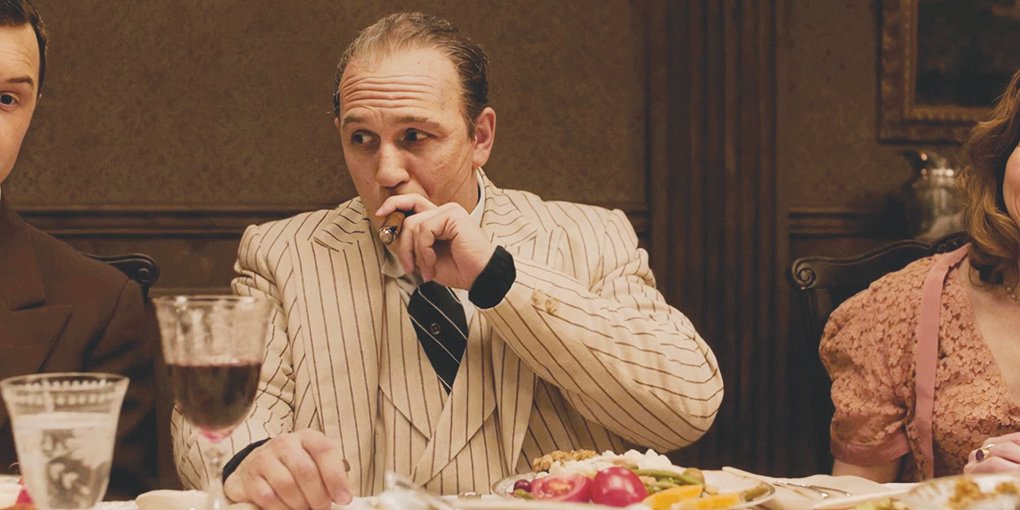
The tantalizing setting of “Capone” are the final years of Al Capone living in exile, a syphilitic shell of his former self released from prison to live out his dying days roaming the grounds of his Palm Island, Florida, manse. But what should have been a framing device for a deeper dive into Capone’s vicious rise to power and unexpected celebrity never takes form. Instead, writer-director Josh Trank stays moored in Capone’s demented demise and the eccentricities of the actor playing him.
The Al Capone in this misbegotten biopic is a far cry from the Chicago crime lord of historical lore. Indeed, Capone’s long-suffering wife Mae (Linda Cardellini) does not permit a coterie of minders and relatives to call him anything other than “Fonzo,” perhaps to distance her disease-ridden husband from any memory of his disreputable past. Through the filter of actor Tom Hardy’s mumbly Method performance, Capone remains an ashen husk, grunting his way through bouts of mania and fever dreams. He repeatedly craps his pants, screams at ghosts, and — on doctor’s orders — unwittingly gnaws on carrots in place of unhealthy cigars. Through a glazed glare, he barely comprehends the liquidation of his prized assets or even the identity of his housemates. Capone sees spies in the distant woodline, a product of both chronic paranoia and, in truth, FBI agents who continue to monitor him, convinced his insanity is an act and he has $10 million hidden away somewhere.
The story of Napoleon on Saint Helena works only as a jumping off point for a perusal of his life and times. In “Capone,” we get only passing glimpses of the gangster’s dormant demons, flashes of bygone glitzy parties and gory murders with a crazed Capone as the unreliable narrator. Trank is just as inconsistent: Capone’s erstwhile cohort Johnny (Matt Dillion) is a former victim whose Jacob Marley-esque visits are apparently all in Capone’s head, yet he is introduced from a third-party perspective, living in Chicago, liaising with an unseen broad, and taking a phone call asking him to come see Capone in Florida.
It is all faint echoes and shadows, always returning to incessant prattle about missing money and a long-lost son (Mason Guccione) who may want to reconnect with his dying dad (and may also be cooperating with law enforcement? I dunno). The audience, ultimately as confused as Capone, does not conjure much sympathy for him or his family, despite Trank’s phantasmagorical efforts otherwise. “Capone” is like the third act of “The Irishman” without the rest of the film preceding it. We are only left with Hardy’s self-indulgent interpretation, which remains captivating until you grasp it is not leading to anything insightful or remotely cogent. Not for a lack of trying, but you can literally see the flop sweat on his brow.